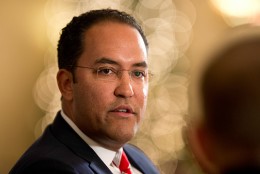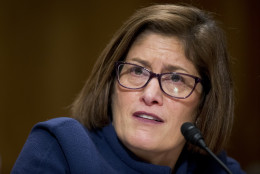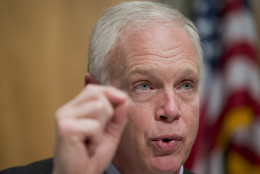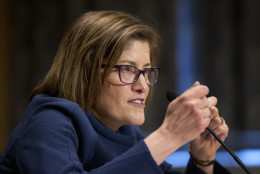Commerce Department
-
After the Modernizing Government Technology Act fell short in the 114th Congress, lawmakers and industry officials have high expectations for the bill this session.
January 30, 2017 -
Linda McMahon, President Donald Trump's pick for Small Business Administration leader, received bipartisan support during her confirmation hearing. McMahon promised to be an advocate for small businesses struggling to work with government agencies.
January 24, 2017 -
Cybsersecurity, customer service, even deep space exploration are on the list of federal agencies' Performance.gov goals in fiscal 2016-17.
December 28, 2016 -
Federal IT Dashboard data compiled exclusively for Federal News Radio shows the average time it takes an agency to complete an IT program to is 1,018 days and the average cost is $23.2 million per program. Both of these data points demonstrate the need to change how CIOs and mission owners measure project success.
December 15, 2016 -
Humans are the weakest link in cybersecurity, but a multilayered security approach could help that.
December 07, 2016 -
Acting Office of Personnel Management Director Beth Cobert said agencies should include merit system principles, the rules and procedures that ensure objectivity in the federal hiring process, as an incentive for the top talent they want to attract.
November 30, 2016 -
Eric Hirschhorn, undersecretary for industry and security at the Department of Commerce, was recently named a fellow by the National Academy of Public Administration.
November 16, 2016 -
The Commerce Department is opening an online library of economic data. Commerce is partnering with the European Commission to stand up the open source tool, which will use R programming language to make it easier for people to search and organize the data based on their search.
October 20, 2016 -
The Department of Commerce announced it is taking the lead for the Opportunity Project, an initiative started by the Obama administration to use big data to create solutions for challenges like affordable housing, job opportunities and quality education.
October 06, 2016 -
The National Technical Information Service is getting ready to announce the names of private sector organizations chosen to help agencies meet their mission using big data.
September 29, 2016 -
Nearly one year after Congress passed the Cybersecurity Information Sharing Act, agencies say they're still looking for more buy-in from from more private sector companies to share and receive cyber threat indicator information with them. Meanwhile, the Justice Department, FBI and Homeland Security Department are trying to perfect their own information sharing practices as an incentive for companies to partner with them.
September 27, 2016 -
Government sources tell Federal News Radio that some in the departments of Commerce, Agriculture and Labor also are pushing back against the implementation of the intrusion detection and prevention program known as EINSTEIN 3-Accelerated (E3A).
September 12, 2016 -
Welcome to the #FedFeed, a daily collection of federal ephemera collected from social media and presented for your enjoyment.
September 08, 2016 -
The Commerce Department is joining the conversation about what role the federal government can play in the success and security of the Internet of Things.
September 01, 2016 -
The Office of Personnel Management has been busy this year helping agencies more quickly recruit, hire and develop cyber talent, an initiative outlined in the President's Cybersecurity National Action Plan. Agencies like the FBI and Commerce Department say they are also beginning to change their mindsets when building teams of cyber experts.
August 30, 2016














